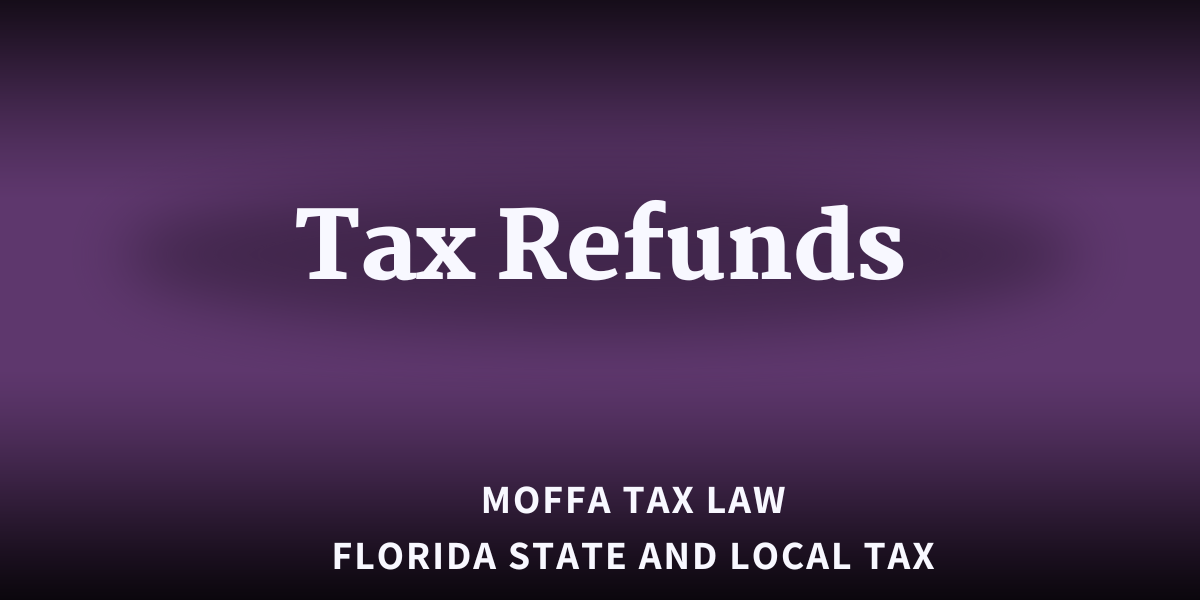NEWS & INSIGHTS


Refund Litigation in 2025: Key Risks, Strategic Decisions, and Emerging Trends
As tax refund litigation continues to gain momentum across federal courts, the procedural and strategic nuances of these cases are coming into sharper focus. Whether the dispute involves a refund claim tied to the Employee Retention Credit (ERC), international reporting penalties, or complex promoter penalty defenses, practitioners must be aware of both foundational pitfalls and rapidly evolving litigation trends.
In 2025, several high-stakes procedural issues—choice of forum, the full payment rule, the variance doctrine, and setoff rights—remain at the center of litigation strategy. Meanwhile, the IRS’s enforcement of the ERC and international information reporting penalties has triggered a surge of new refund suits. Below is a comprehensive look at how refund litigation is developing and what taxpayers and practitioners must watch for.
I. Core Procedural Pitfalls in Refund Litigation
1. Choosing the Right Forum: Not Just a Jurisdictional Exercise
One of the earliest and most consequential decisions in refund litigation is selecting the appropriate forum. The options—U.S. District Courts, the Court of Federal Claims, or the U.S. Tax Court—each come with their own jurisdictional boundaries, procedural quirks, and tactical considerations.
U.S. Tax Court handles deficiency cases but not refund suits. No jury trials are available, and the process is relatively informal.
U.S. District Courts and the Court of Federal Claims hear refund actions. District Courts allow jury trials, which may influence outcomes in fact-heavy disputes. The Court of Federal Claims does not.
Discovery practices vary widely. In the Tax Court, discovery is informal with limited depositions. Refund courts (District Courts and the Court of Federal Claims) are governed by the Federal Rules of Civil Procedure, meaning initial disclosures, depositions, and formal discovery are commonplace.
Practitioners must also consider who will be litigating against them—IRS counsel in the Tax Court, versus Department of Justice attorneys in refund forums. These differences affect not only courtroom dynamics but also the government’s litigation posture and settlement practices.
2. The Flora Rule: A Barrier to Access
The so-called Flora full payment rule restricts a taxpayer’s ability to initiate a refund lawsuit until the full amount of the tax liability in dispute has been paid. While the rule has notable exceptions (for divisible taxes such as payroll or excise taxes), it remains a significant procedural hurdle.
Courts have continued to enforce Flora strictly, despite ongoing criticism. Legislative efforts to reform this rule have gained some attention in recent years, but for now, practitioners must continue to navigate around this jurisdictional requirement when planning refund litigation.
3. Filing a Proper Refund Claim: Timing and Specificity Matter
Before bringing any refund suit, a taxpayer must file a timely administrative claim with the IRS. Under Internal Revenue Code § 7422 and accompanying regulations, the claim must clearly state the legal and factual basis for the refund sought.
The IRS recognizes both formal and informal claims:
Formal claims include amended returns (like Form 1120X) and Form 843 for other taxes or penalties.
Informal claims—such as detailed correspondence or protest letters—may qualify, but only if they adequately inform the IRS of the grounds for the refund.
Recent court decisions emphasize the importance of laying out all relevant arguments at the administrative level. A failure to do so can later trigger the government’s variance defense, barring new arguments in court if they diverge from the original claim.
4. The Variance Doctrine: Scope of the Lawsuit
Under the variance doctrine, once the limitations period for filing a refund claim has expired, taxpayers are generally barred from raising new legal theories or factual arguments in court that were not included in their original claim.
There are exceptions—taxpayers may raise new arguments in response to government counterclaims—but only to the extent necessary to rebut the government’s new position. Even then, courts have enforced the doctrine strictly. However, courts have also refused to apply the doctrine when the IRS had actual or constructive notice of the claim’s substance.
Avoiding variance issues requires clarity and completeness in the administrative claim from the outset.
5. Offsets and Setoffs: The IRS Keeps the Upper Hand
Even if a taxpayer prevails in a refund suit, the IRS retains broad authority under IRC § 6402 to offset overpayments against other outstanding federal tax debts—or even debts to other federal or state agencies. This includes past-due child support, unemployment compensation debts, and other legally enforceable obligations.
Refund litigation strategies should take these potential offsets into account, especially where the taxpayer has other liabilities on file.
II. Trending Topics in Refund Litigation
Refund litigation is expanding well beyond traditional overpayment claims. In 2025, three major areas stand out as the most active and contentious: the Employee Retention Credit, international information reporting penalties, and promoter penalties.
1. Employee Retention Credit (ERC): The Litigation Frontier
The ERC has been one of the IRS’s top enforcement priorities, and refund suits challenging disallowed ERC claims are booming. After placing a moratorium on ERC claims submitted after September 2023, the IRS has been ramping up scrutiny—especially where claims involve partial business suspensions or aggressive eligibility interpretations.
Key issues in ERC refund suits include:
Gross Receipts Test vs. Partial Suspension: The statute allows eligibility either through a drop in gross receipts or a full/partial suspension of business due to COVID-19 orders. IRS guidance (Notice 2021-20) provides a safe harbor for a 10% reduction in operations, but its legal status remains contested.
Wage Expense Deductions: Whether and when to amend income tax returns to reflect disallowed ERC wages has created procedural confusion. The IRS has stated that refunds should not be claimed for the year the wages were paid if the ERC is later disallowed—an issue currently under dispute in litigation.
Case Watch: Stenson Tamaddon, LLC v. IRS has raised critical questions about IRS procedures, timing of refund claims, and the impact of ERC disallowance on income tax filings. Other suits are expected as the IRS begins processing the backlog of claims post-moratorium.
2. International Information Reporting Penalties: Challenging the Foundation
The enforceability of certain international information reporting penalties is under serious challenge, particularly those under IRC §§ 6038, 6038B, and 6039F. These provisions penalize taxpayers for failing to file required forms like Form 5471 or Form 3520, often resulting in automatic five-figure penalties.
Two key legal issues are emerging:
Are these penalties “assessable”? Courts are split. In Farhy, the D.C. Circuit held that the IRS lacked assessment authority under § 6201 for the 6038(b) penalty. The Tax Court later disagreed. Other circuits may follow suit, creating uncertainty nationwide.
Refund suits are on the rise, including recently filed cases such as Yang v. United States and Zhang v. IRS, challenging penalties under IRC § 6039F for late or incomplete gift disclosures.
Taxpayers facing steep international penalties may find refund litigation to be the most viable path to relief.
3. Promoter Penalties and Section 6700
Refund litigation involving promoter penalties under IRC § 6700 is also gaining attention. These penalties target individuals and entities that promote abusive tax shelters or make fraudulent statements related to tax benefits.
Taxpayers subject to these penalties can sometimes challenge them in district court by paying 15% of the asserted amount and filing Form 6118. The government may argue for an extension of the collection period under § 6703(c), and the resulting litigation can be intense and technical.
These cases often involve high-dollar penalties and issues of first impression, requiring careful procedural navigation and deep familiarity with the statutory framework.
III. Final Thoughts: Strategic Litigation Requires Strategic Preparation
Refund litigation is rarely just about whether the taxpayer overpaid. It is a complex procedural battleground involving jurisdictional hurdles, document sufficiency, timing rules, and shifting legal interpretations. Successful refund litigation demands:
Meticulous preparation of refund claims,
Early identification of legal theories,
Careful selection of forum and timing,
A proactive approach to IRS counterarguments and offsets,
A deep understanding of both recent cases and historical doctrines.
As IRS enforcement evolves and tax litigation continues to grow, businesses and practitioners must stay informed, strategic, and ready for what lies ahead.
Share
Additional Articles by the SALTy Orange at Moffa Tax Law:
Tax Refund Litigation – Tips & Pitfalls
NEWS & INSIGHTS Tax Refund Litigation – Tips & Pitfalls Refund Litigation in 2025: Key Risks, Strategic Decisions, and Emerging…
Research & Development Tax Credits – 2025 Update
NEWS & INSIGHTS Research & Development Tax Credits 2025 Update The federal research and development (R&D) tax credit remains a…
The Biggest Cases in State and Local Tax 2024-25
NEWS & INSIGHTS March 2025 State and Local Tax Update: Deference Battles, Trial-Ready Cases, and New Reform Proposals March brought…

Jeanette Moffa, Esq.
(954) 800-4138
[email protected]
Jeanette Moffa is a Partner in the Fort Lauderdale office of Moffa, Sutton, & Donnini. She focuses her practice in Florida state and local tax. Jeanette provides SALT planning and consulting as part of her practice, addressing issues such as nexus and taxability, including exemptions, inclusions, and exclusions of transactions from the tax base. In addition, she handles tax controversy, working with state and local agencies in resolution of assessment and refund cases. She also litigates state and local tax and administrative law issues.


